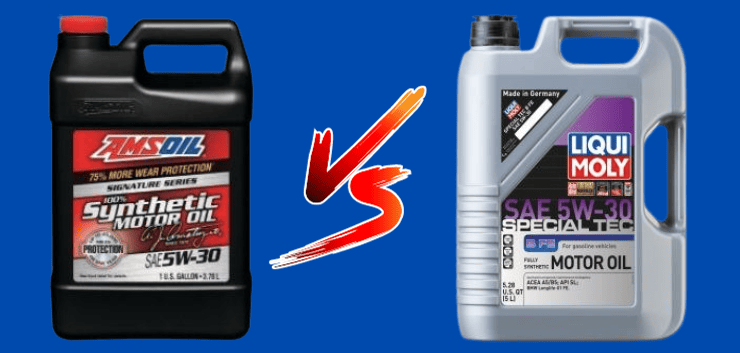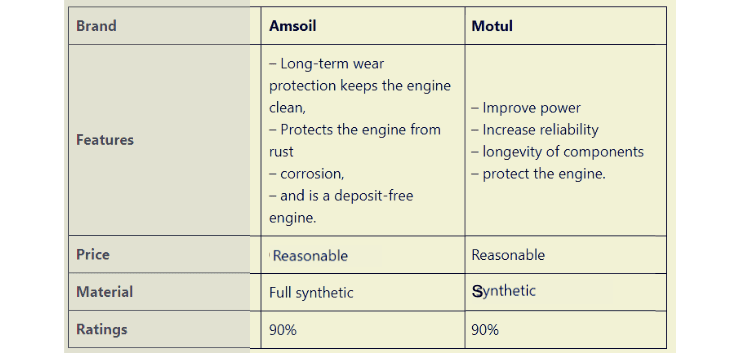Amsoil vs Motul—which is better?
When it comes to synthetic oils, Amsoil and Motul are two top names, but let me tell you why Amsoil stands out.
I’ve been using Amsoil for years, and it’s been unbeatable in every aspect—price, quality, and efficiency.
Amsoil is a long-time favorite known for its unwavering commitment to top-tier engine protection.
It offers extended drain intervals and excellent wear protection, making it perfect for drivers who want their engines to last longer and stay cleaner.
This oil keeps my engine running smoothly, minimizes the buildup of deposits and sludge, and provides robust rust and corrosion protection, especially in challenging environments.
On the other hand, Motul is synonymous with high-performance lubricants and motorsports. It’s loved for boosting engine power and maintaining reliability under extreme conditions.
While Motul’s 300V series is favored among car enthusiasts, I found that Amsoil outperforms even in high-stress scenarios. Sure, Amsoil might be a bit pricier, but it offers unmatched longevity and cleanliness.
This ensures that my engine remains in peak condition over a longer period, contributing to cost savings and a reduced environmental impact with fewer oil changes.
Motul is a solid choice for those seeking performance at a reasonable price. However, if you’re like me and prioritize long-term reliability, engine cleanliness, and overall efficiency, Amsoil is the clear winner.
Both brands are well-regarded, but my personal experience with Amsoil has shown it to be superior in every way. Always check your vehicle manual to ensure you’re choosing the right oil for your engine.
Drive safe and drive smart, knowing you’ve chosen the best synthetic oil to protect and enhance your vehicle’s performance with Amsoil.
Here, we will dissect the characteristics of both brands, highlighting their strengths and weaknesses. This will help you decide which synthetic oil is the right fit for your engine.


